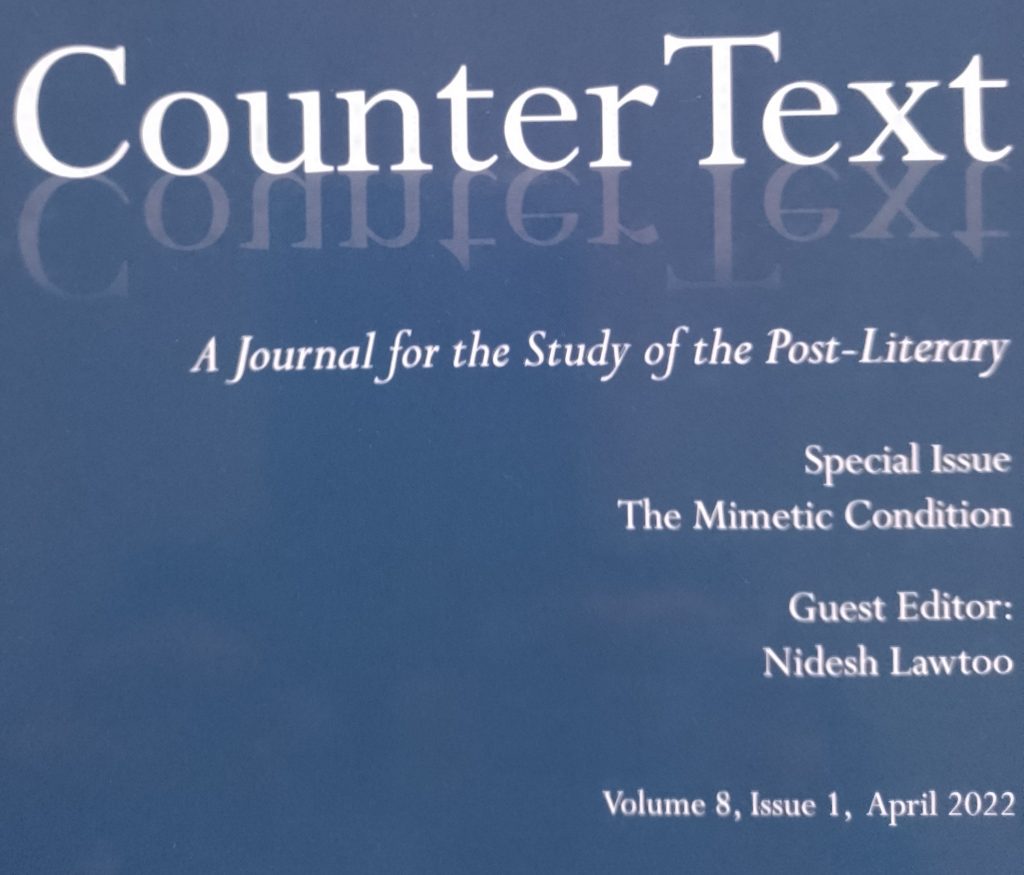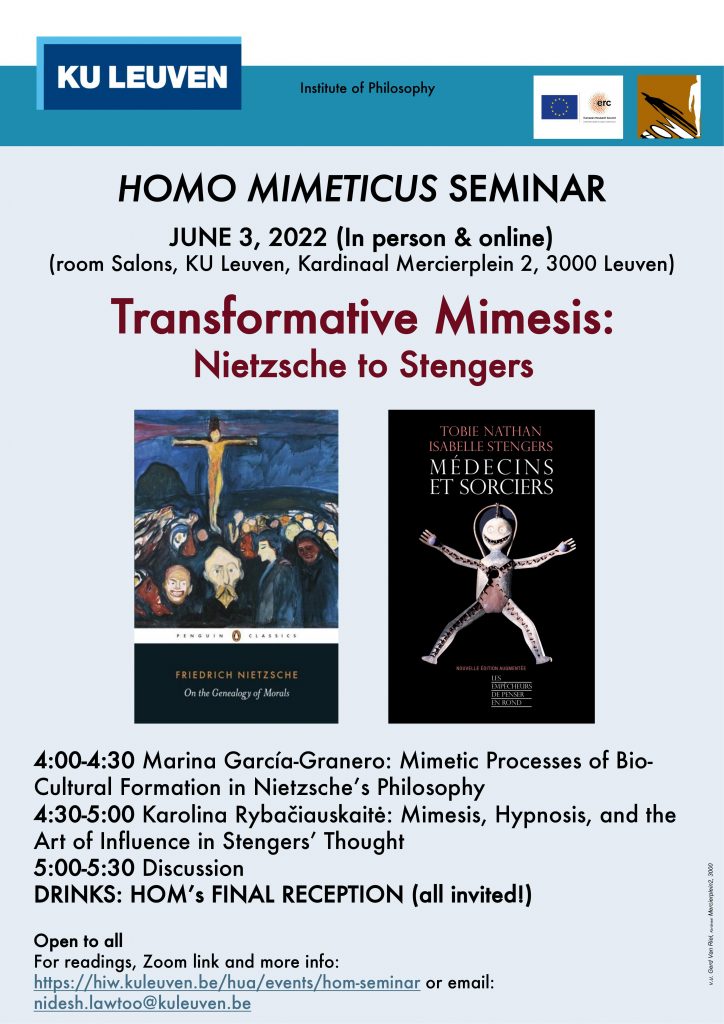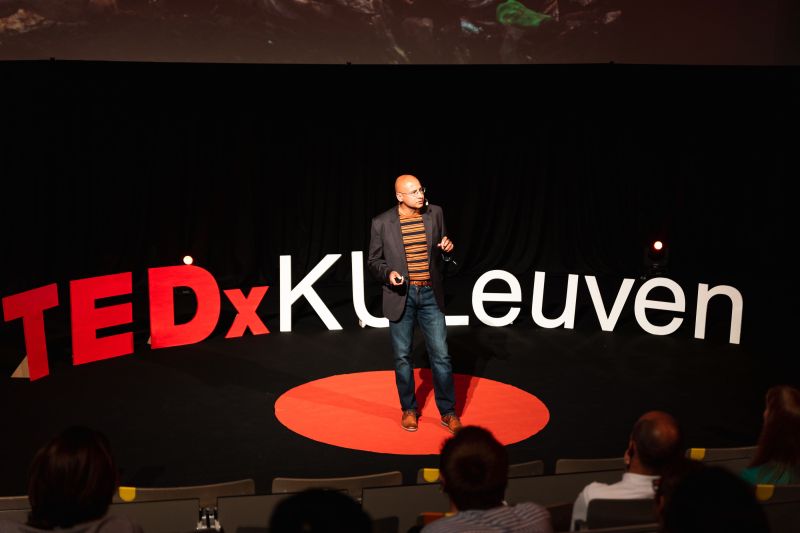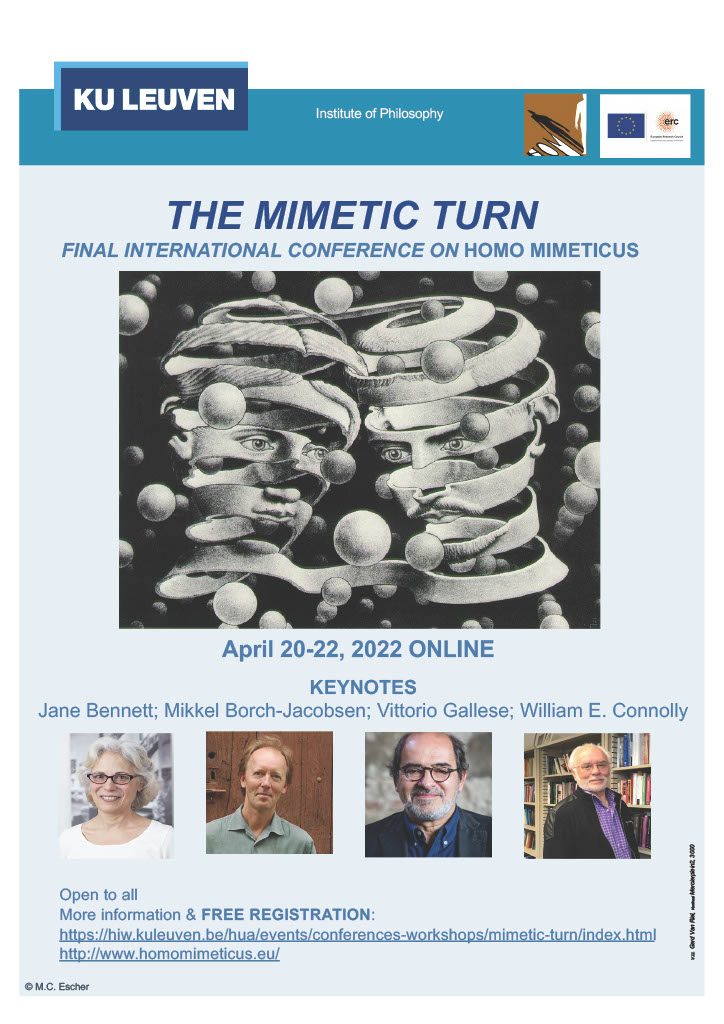If, for a long time, mimesis has been restricted to the logic of visual representation, aesthetic realism, and the metaphysics of sameness it presupposes, the ERC-funded project Homo Mimeticus overturns this perspective to foreground a re-turn to an immanent, affective, embodied, and relational conception of mimesis at play in different processes of becoming other. This introduction to The Mimetic Turn Conference (April 2022) presents some of the concepts driving this new theory of homo mimeticus.
Tag Archives: homo mimeticus
SPECIAL ISSUE: The Mimetic Condition

Based on a HOM conference held at KU Leuven, this special issue of CounterText on The Mimetic Condition (ed. Nidesh Lawtoo) joins forces with Jean-Luc Nancy, Gunter Gebauer, Christoph Wulf, and many others in order to promote a mimetic turn, or re-turn of attention to mimesis across different areas of critical theory. In the process, it proposes steps to a new theory of homo mimeticus to face some of the main–pandemic, political, environmental…– crises that cast a shadow on the present and future. Sample chapters available HERE& an Introductory VIDEO HERE.
HOM Seminar: Transformative Mimesis: Nietzsche to Stengers (June 3)

Readings & more details HERE.
Homo Mimeticus: Nidesh Lawtoo @ TEDx

To conclude the Homo Mimeticus Project, PI Nidesh Lawtoo takes the mimetic turn on the TEDx stage, where mimesis has been at play for quite some time. Addressing the timely question, “how to (re)structure the (de)structured,” Nidesh takes us on an untimely philosophical journey–from children’s mimicry to Socrates’ dialogues, emotions to emojis, the Greek stage to the TED stage–to show that imitation is constitutive of an original species he calls, homo mimeticus.
Jean-Luc Nancy on The Myth of Community
Jean-Luc Nancy is internationally known for launching the concept of “community” on the philosophical scene. But what is the mythic experience that gave birth to his community in the first place? Where was this scene set? And who are its protagonists? In this singular-plural Prelude shot in the summer of 2020, Nancy begins to narrate the myth of the Strasbourg community to Nidesh Lawtoo, addressing a world that “is soon going to disappear”…
Viral Mimesis: The Patho(-)Logies of the Coronavirus (N. Lawtoo)

In this article, Nidesh Lawtoo argues that the human, all too human vulnerability to mimesis (imitation) is a central and so far underdiagnosed element internal to the Covid-19 pandemic crisis. Supplementing medical accounts of viral contagion, the chapter develops a genealogy of the concept of mimesis – from antiquity to modernity to the present – that is attentive to both its pathological and therapeutic or patho-logical properties. Read full article here.
The Mimetic Turn: HOM Final Conference, April 20-22.

The ERC-funded project Homo Mimeticus: Theory and Criticism (HOM) hosted by the Institute of Philosophy and the Faculty of Arts at KU Leuven, Belgium, is pleased to announce its final international conference titled The Mimetic Turn (April 20-22, 2022; ONLINE). Keynotes and Invited Speakers include Mikkel Borch-Jacobsen, Vittorio Gallese, Jane Bennett, William Connolly, Henry Staten, among other internationally renowned theorists and critics. Recordings here
HOM Videos 6, Feminist Politics of Mimesis: Adriana Cavarero
In the sixth episode of HOM Videos, Nidesh Lawtoo (KU Leuven) meets the Italian feminist philosopher and political theorist Adriana Cavarero (U of Verona). From Plato to Arendt, Cavarero discusses the relational ontology that inclines the subject toward the other, the dangers of mass behavior, and the possibilities for a new feminist ethics. The city of Verona provides a background to Cavarero’s reflections on mimetic inclinations at play in a feminist politics of mimesis.
The Human Chameleon: Zelig, Nietzsche, and the Banality of Evil

In this OA article for Film-Philosophy Nidesh Lawtoo revisits the case of Woody Allen’s mockumentary Zelig (1983) via Nietzsche’s diagnostic of mimicry and Arendt’s analysis of the banality of eivl. It argues that the case of the “human chameleon” remains contemporary for both philosophical and political reasons for it reveals the centrality of mirroring reflexes in the rise of old and new fascisms.
Nietzsche on Mimetic Metamorphoses Part II
For Nietzsche philosophy was a diagnostic activity that entailed looking at sickness from the perspective of health (and vice versa) to propose cures. In Part 2 of this talk, shot in Sils Maria, Switzerland, Nidesh Lawtoo considers the role of mimesis that leads Nietzsche to turn personal sickness or pathology into a diagnostic critique of mimetic pathos, or patho-logy. Drawing on concepts articulated in The Phantom of the Ego (2013), Nietzsche turns out to be at the origins of the concepts of mimetic pathos, pathos of distance, and patho(-)logies internal to HOM Theory.
